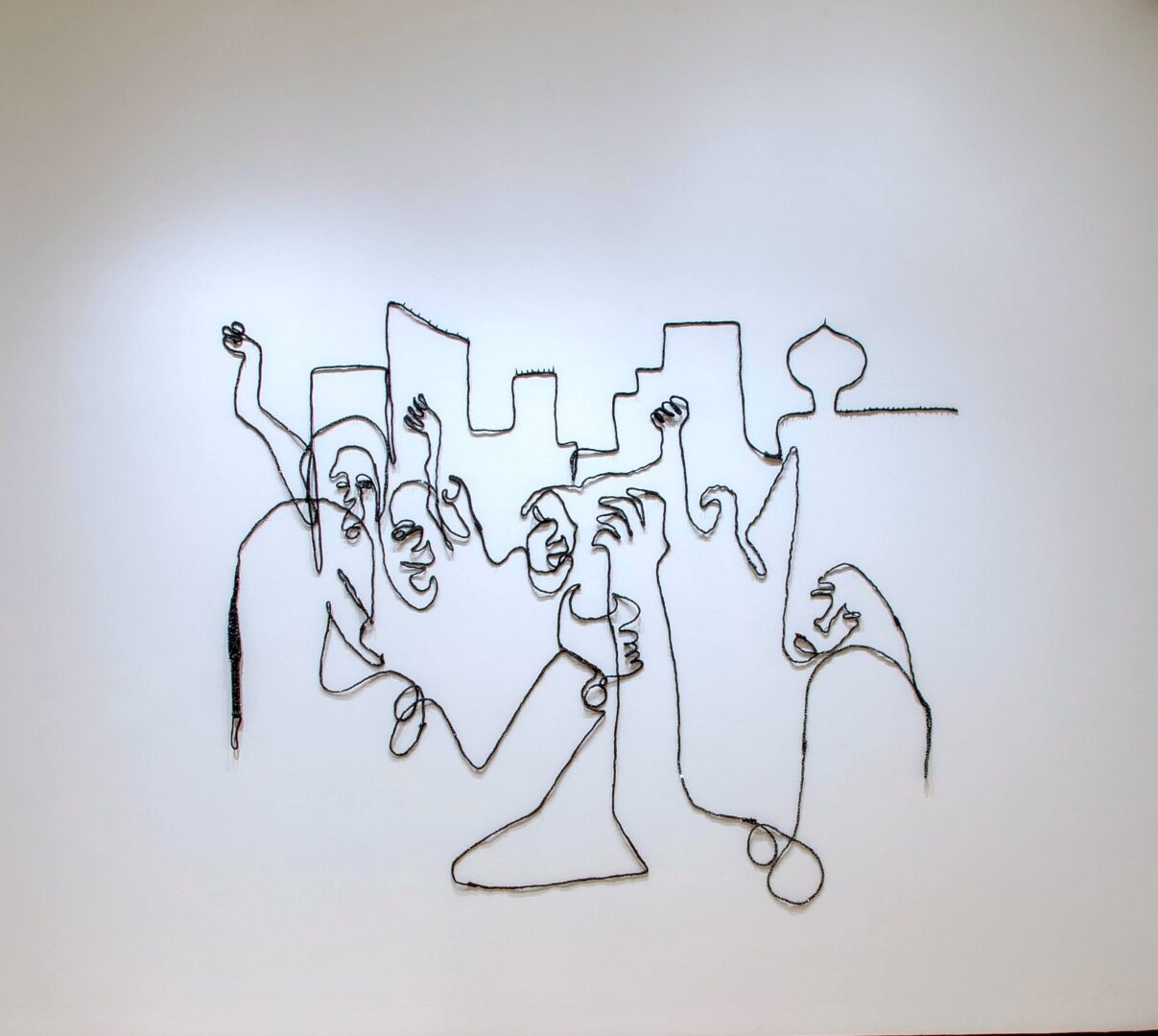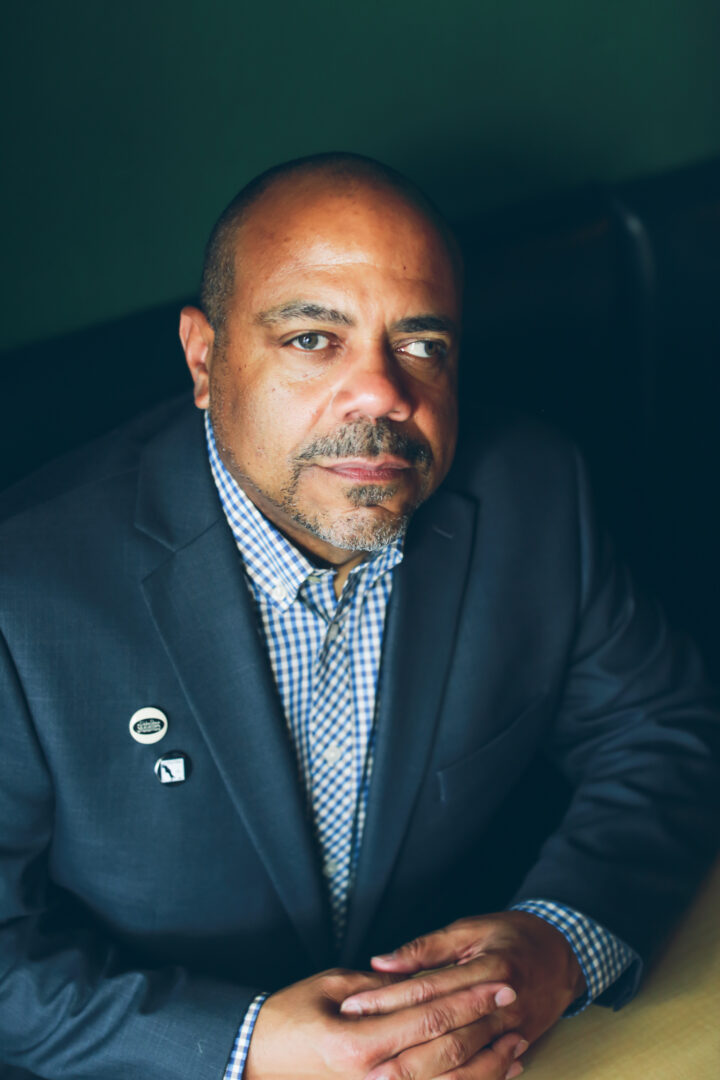In this moment of mounting political repression, too many in philanthropy are still asking “is this really happening?” when they should be asking “what are we willing to do about it?”
We are not in a cycle of backlash. We are not experiencing a wave of polarization. We are facing a deliberate, coordinated, and accelerating authoritarian project – one that targets not only civil rights protections, but the very possibility of a multiracial democracy.
If those of us committed to the work of bridging, making democracy work, and securing an inclusive America want to be on the right side of history, we must stop acting as if these are disconnected issues. The attacks on trans rights, voting rights, public education, birthright citizenship, reproductive justice, environmental justice, and nonprofit legitimacy are not isolated events. They are linked by design – powered by a shared worldview that sees inclusion as a threat and equity as subversion.
And yet, much of philanthropy still operates in silos – responding to each threat as a separate fire rather than seeing the arsonist at work. And if you want to know where the fire starts, look at who controls the story. One of the first targets of any authoritarian movement isn’t the vote – it’s the voice.
The War on Story, the Erasure of Data
Authoritarian movements understand something we in philanthropy sometimes forget: Narrative is power. Data is power. Stories are how people make meaning – and meaning is how they decide what’s just, what’s normal, and what’s worth fighting for.
That’s why disinformation isn’t just a symptom of authoritarianism – it’s a core strategy.
We’re watching the deliberate erosion of truth:
- School boards across the United States have banned over 10,000 books in the past year alone – many featuring LGBTQ+ and Black protagonists, which is an unprecedented surge that targets identity, memory, and belonging.
- Data collection is being gutted – from bans on race and gender data in some states to restrictions on public health reporting around maternal mortality and climate impact.
- Culture workers and storytellers are being targeted, labeled as “radical” or “un-American,” defunded, or intimidated into silence.
This isn’t new. Every authoritarian regime begins by going after artists, educators, and record-keepers. They understand the stakes. Do we?
If we don’t fund the storytellers, data collectors, culture organizers, and narrative strategists, we cede the battlefield to those who will. This erosion of narrative and knowledge isn’t happening randomly. It’s part of a larger strategy – one drawn from a well-worn authoritarian playbook.
A Playbook of Suppression
The opposition isn’t improvising. It’s operating from a tested playbook refined over decades and modeled globally in places like Hungary, India, Brazil, and Russia. That playbook includes 3 main tactics:
- Roll Back Gains. We’re witnessing the dismantling of civil rights infrastructure like the repeal of Roe v. Wade and over 30 states introducing anti-diversity, equity, and inclusion laws in 2024 alone. These moves are often packaged as neutrality or fairness, but they are designed to obscure disparities and silence demands for justice.
- Erode Legitimacy. Right-wing campaigns have rebranded educators as indoctrinators, nonprofit leaders as foreign agents, and equity itself as extremism. In “The American Prospect,” Aaron Dorfman documented that authoritarian-supporting donors and foundations have spent over $1 billion to suppress voting and dismantle social movements—especially those led by Black, brown, and immigrant communities.
- Fracture Mutual Accountability. The goal is to isolate and exhaust each group before moving to the next by targeting specific communities—trans people, undocumented immigrants, and pregnant women of color—the goal is to isolate and exhaust each group before moving to the next. These attacks become wedges used to divide movements and limit public empathy.
What We’re Really Up Against
Let’s connect the dots:
- Voter suppression now includes targeting trans communities. According to the Williams Institute, over 200,000 transgender adults in states with strict voter ID laws could face barriers to voting because their IDs do not reflect their gender identity, which disproportionately affects their access to the ballot box.
- Birthright citizenship, grounded in the 14th Amendment, is under renewed attack. Trump’s 2018 executive order attempt signaled a broader movement to redefine who qualifies as “American.”
- Reproductive justice is being criminalized. The Guttmacher Institute reports that 13 states now ban abortion entirely, and in several states, laws intended to restrict abortion have been used in ways that open the door to investigating or even prosecuting pregnancy outcomes like miscarriages – creating a chilling effect, especially for Black and brown women.
- In at least 17 states, “critical infrastructure” laws have been used or proposed to increase penalties for protests often aimed at environmental and Indigenous organizers challenging pipelines and fossil fuel projects.
- Bills like the Stop Terror-Financing and Tax Penalties on American Hostages Act threaten to undermine the credibility of social justice nonprofits by using broad definitions that could be weaponized under the guise of national security.
All of this is happening while diversity, equity, and inclusion efforts are rolled back, movement leaders are surveilled, and entire communities are painted as “extremists” in media echo chambers.
This isn’t fearmongering – it’s a pattern. If philanthropy is to be relevant in this moment, we must treat narrative, data, and story not as supplements to our strategy, but as central pillars of it. This isn’t the first time regimes have tried to erase truth and control meaning. In fact, we’ve seen this story before – and we’ve seen how resistance rises.
Sidebar: Voices Under Attack – Who’s Being Targeted and Why It Matters
If you want to know where the authoritarian playbook is being tested, follow the storytellers under fire.
- In Florida, a Black history teacher was fired after showing a documentary on civil rights and voting suppression.
- In Texas, educators and districts are being investigated for allegedly teaching banned materials, including lessons from the 1619 Project – part of a broader crackdown on race and gender education.
- In Georgia, data scientists analyzing voter suppression patterns are being sued or sanctioned.
- In 2024, a senior data reporter at ProPublica was subpoenaed in an IRS lawsuit, raising alarms about growing efforts to chill investigative reporting and suppress public-interest data.
These aren’t outliers, they’re indicators of where this project is heading. When state power is used to criminalize research, censor art, or silence educators, it’s not about protecting the public. It’s about shrinking the space for collective truth-telling.
Philanthropy cannot afford to watch this from the sidelines. These are the canaries in the coal mine – and if we don’t act quickly and boldly, we won’t just lose information. We’ll lose infrastructure, memory, and the very idea of accountability.
Lessons from Past Authoritarian Crises
If we need historical proof that story and data are essential to resisting authoritarianism, we don’t have to look far.
In apartheid South Africa, underground newspapers and rogue radio broadcasts kept hope alive for generations of Black South Africans. They provided counter-narratives that exposed the violence of the regime and connected people across isolated townships.
During the Jim Crow era, the Black press – outlets like the Chicago Defender and the Pittsburgh Courier – not only reported on lynchings and racist laws but also organized national campaigns for justice. These were not just newspapers, they were organizing tools, lifelines, and resistance infrastructures.
In the former Soviet Union, dissident intellectuals and artists created “samizdat” – a clandestine publishing network that spread censored literature, political critiques, and moral witnesses. It was illegal. It was dangerous. And it was critical to the eventual collapse of state-controlled ideology.
We are not facing the same context – but we are facing the same logic: Control the story, and you control the future. Philanthropy must recognize that to fund storytelling and data is to fund resistance.
What Philanthropy Must Do
Narrative and data must be invested in with foresight and cannot become afterthoughts of the resistance. These must become front-line strategies. That means:
- Funding storytellers, artists, and independent media: We already have powerful story workers like the Black Trans Media collective in New York and Indigenous youth running TikTok campaigns in the Pacific Northwest. Fund them. Trust them. Let them lead.
- Funding data infrastructure: Projects like the National Equity Atlas and the COVID Black data initiative show what’s possible when data is gathered by and for communities. These efforts need to scale – not shrink – especially as government data becomes increasingly politicized or inaccessible.
- Funding narrative strategy: Institutions like the Pop Culture Collaborative, MediaJustice, and ReFrame are building long-term narrative power across movements. These aren’t just “comms shops” – they are architects of belonging, resilience, and hope.
- Funding long-term organizing: Too many groups are forced into survival mode. Imagine if we funded narrative and data like we fund electoral cycles, with multi-year commitments, full cost coverage, and alignment with base-building strategies.
- Funding boldly: Let’s reward risk. Let’s protect leaders who speak uncomfortable truths. And let’s build infrastructures – legal, digital, and cultural – that make it safer to tell the truth and harder to erase it.
Clarity and Courage
I often ask myself: What’s the difference between those who shape history and those who react to it?
It’s not intelligence.
It’s not resources.
It’s not even intention.
It’s clarity—about what’s really happening.
And it’s courage—to act accordingly.
The opposition has both. They are unapologetically funding their vision of the world. They’re
not afraid to offend. They are thinking in decades.
So the question is: Will we?
This isn’t just a political fight. It is a moral one—about whether we believe in the dignity of all people. About whether we believe that data and stories, in the right hands, are tools of liberation—not threats to be silenced.
Philanthropy has the power to make that difference. It has the power to protect the truth—and the people who carry it.
Eric K. Ward is the Executive Vice President of Race Forward and a Senior Fellow with the Southern Poverty Law Center. A recipient of the Civil Courage Prize, he has been active in philanthropy since the early 1990s, from McKenzie River Gathering to present board roles at Proteus Fund and NCRP. Eric is also the producer of the documentary “White With Fear” and a longtime strategist at the intersection of racial justice, democracy, and inclusion.

